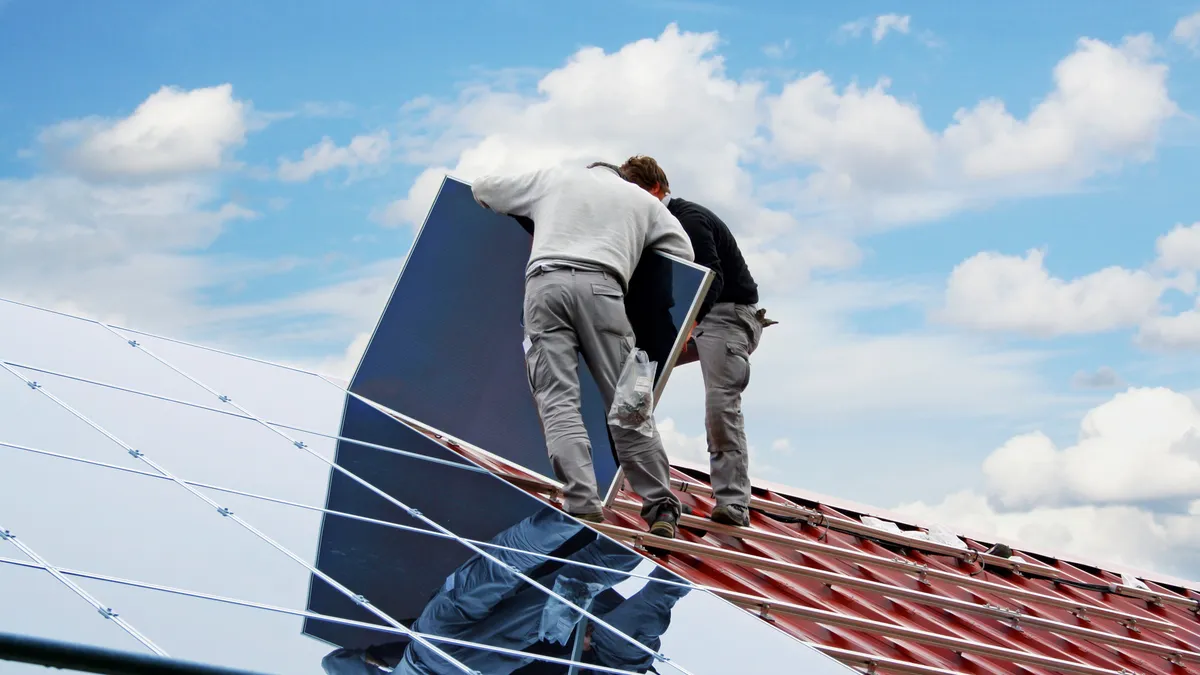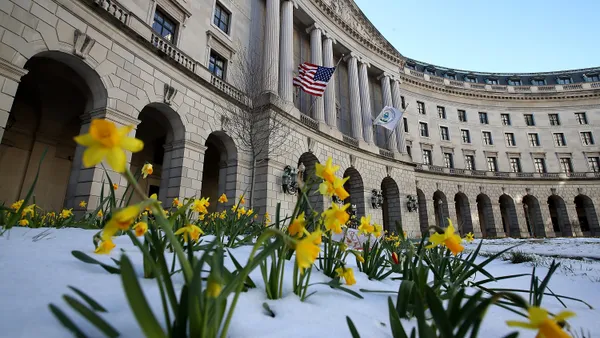Update: The article was updated to include a statement from Consumers for Smart Solar.
Dive Brief:
- The Miami Herald unearthed an audio recording featuring a policy director describing Amendment 1, widely seen as an anti-solar initiative by solar advocates, as an "incredibly savvy maneuver" that could "completely negate anything [pro-solar interests] would try to do legislatively or constitutionally down the road."
- According to the Miami Herald, James Madison Institute (JMI) vice president Sal Nuzzo essentially confirmed at an industry conference what solar advocates have long claimed: that utility interests the amendment sought to confuse the voters by "using the language of promoting solar" to put in place so-called protections for non-rooftop solar users and push against third-party providers.
- Solar advocates were quick to call out the shady tactics, but a spokesperson for utility-backed Consumers for Smart Solar denied hiring JMI to work on the issue.
Dive Insight:
It's not the sort of event that would normally merit such in-depth coverage, but the audio of a panel discussion where Nuzzo gave a blunt assessment of the logic behind Amendment 1 has sparked more controversy over the future of third-party owned solar in Florida as the November election looms.
Amendment 1 would amend the state's constitution to establish that consumers "have the right to own or lease solar equipment," but negate third party sales of rooftop solar. Clean energy advocates have said the measure would actually enshrine the utility's monopoly. Nuzzo called the language of the ballot a "little bit of political jiu-jitsu."
The revelations drew swift condemnation from solar advocates.
"These revelations, while not surprising, have now confirmed to the citizens of Florida that Amendment 1 was and is a predesigned attempt to destroy all free market energy in the state along with solar energy in general. We as a coalition stand firm against Amendment 1,” Floridians for Solar Choice's Tory Perfetti said in a statement.
In an email to Utility Dive, spokeswoman Sarah Bascom said Consumers for Smart Solar never worked with JMI.
"From the beginning we have made clear that Amendment 1 was offered as a better alternative to another proposed amendment that would have left consumers vulnerable to scams and forced them to subsidize out-of-state solar companies....JMI does not speak for our effort, and whatever this individual is claiming or taking credit for or claiming with in regard to Amendment 1 is simply not true."
Utilities have backed Amendment 1 to the tune of $21 million so far. Duke Energy and NextEra subsidiary Florida Power & Light were the largest donors to the group supporting Amendment 1, Consumers for Smart Solar, shelling out a combined $11 million.
The Florida Supreme Court ruled 4-3 to approve the language in the utility-backed ballot solar amendment earlier this year. But Judge Barbara Pariente said in a dissent that that the amendment’s language was misleading as it does not give them an actual "choice" to choose energy alternatives.
"The amendment’s ballot title and summary also fail the statutory requirement for accuracy because their misleading language creates a false impression," Pariente wrote.
A competing ballot initiative, backed by Floridians for Solar Choice, would have legalized third party ownership of distributed solar in Florida, but the measure did not make it onto the November ballot.














